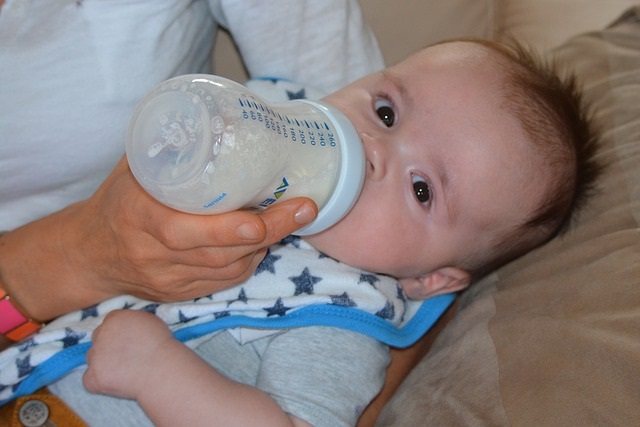Promotions
While not part of the Consumer Rights Act 2015 , some products are not permitted to have special promotions at all.
Products banned from promotion - advertising formula milk for babies under 6 months is banned in the UK to encourage breastfeeding in new mothers. Specifically the Infant Formula and Follow-on Formula Regulations (2007) state that no "promotional activity to induce the sale of an infant formula" is permitted. Therefore, it would not be permitted to have any special offers on this product within a pharmacy. The law does not apply to follow-on milk products for older children; however, any promotions or advertising on those products must be clearly separate, or in a different location in the store so that a customer cannot associate any promotional claims to be regarding the infant formula instead. There are also general rules prohibiting any promotions within a business if they are specifically aimed at children.

A pharmacy is permitted to run promotions as long as they are both honest and truthful; however there are certain practices in breach of the Consumer Rights Act 2015 which every pharmacy must consider.
Advertising claims - any claims made about a product must have demonstrable evidence behind statements. For example, imagine the pharmacy is stocking a new orthopaedic cushion and to advertise the product the following promotional line is used "cure your backache completely using this cushion on a daily basis". It would need to have some evidence to support claims, perhaps with research findings, such as "75% of users have reported an improvement in their back problems after using the cushion for 3 months on a daily basis".
If a product within the pharmacy is being promoted as 'new' this claim can only be made up to one year from the launch date. It is the same for an 'introductory offer', this should not continue to run without a clear end date and the normal RSP that the product will be sold at following the introductory period as it could be misleading to a customer.
If you wish to price promote a product, the advertising claim should be clear and fair to the customer. If you wish to claim a saving against a product such as Save 1/3, this requires an original RSP to be in place prior to the promotional price being implemented unless clearly stating otherwise on the point of sale/marketing material.
Products within your pharmacy should be price established at the original RSP for at least 28 days prior to reducing the pricing of the product and claiming a promotional offer.
Special offer but products not in stock - this involves advertising a very preferential offer to customers but only having a very limited number available, such as 'blood pressure monitors' for sale at £1 each, but only having 10 available at that price. This is known as bait advertising and is only acceptable if the pharmacy is very specific on the amount available to customers at that price.
Limited time only - if a business falsely states that a product is only available for a limited time or on particular terms for a limited time with the intention to pressurise a customer to make an immediate decision, this is not seen as acceptable practice as it does not give customers sufficient time to make an informed choice. This doesn't prevent you from correctly advising a customer that something is for a limited time or has limited availability, for example the flu vaccination service. A similar practice which is not permitted is to promote a product at a price that the business does not actually want to sell it at, and when the customer requests to buy it, either refuse to show them the product, refuse to accept orders or promote a similar item instead.
Being untruthful with customers - a business should not provide inaccurate information on market conditions or availability of products to induce a customer to buy. For example, telling a customer that they may want to stock up on their supply of indigestion remedy as there are rumours there is the likelihood of supply issues with the manufacturer in the next few months, if this is not true. The Royal Pharmaceutical Society ( RPS ) advertising guidelines also see this practice as unacceptable as it would be abusing the trust of the general public and could potentially bring the profession into disrepute.
Similar products - a pharmacy should not mislead customers by stocking a product which looks 'similar' to a well-known brand such as a shampoo and then putting advertising material related to that well-known brand on the shelf next to it, so the customer could confuse the two products.
Closing down sale - a company breaches the law if they have a 'closing down' sale but have no intention to cease trading or move premises. It would also not be permitted if the pharmacy is just closing on a temporary basis for a shop refit.
